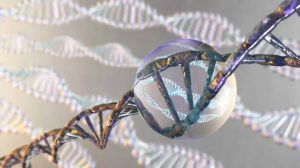Moderna Therapeutics is working with Amazon’s cloud service, Amazon Web Services (AWS), to deliver a new class of medicines. The Cambridge, Massachusetts-based biotechnology company, has already undergone clinical trials with mRNA, molecules that convey genetic information from DNA to the ribosome, to develop personalized therapies for a wide range of diseases, including cancer, infectious diseases and rare liver diseases. Notably, the company has called mRNA and its drug development process “the software of life.”
In an interview with CNBC during the J.P. Morgan Healthcare Conference, CEO Stephane Bancel explained how AWS, which is the fastest-growing division in the tech giant, is playing a central role in the research to build medicines.
“We have a phase two study going on where we are designing every product for every patient,” he said. “So we start by taking a biopsy of a cancer, we next-gen sequence it, we next-gen sequence a healthy cell of a body [and] we send everything to AWS” in order to “compare every letter of a DNA ... of a healthy cell and a cancer cell, and from that we deduce what do we need to do in our product just for your cancer.”
Moderna, which was founded in 2010, is using AWS for more than a dozen drug candidates in the pipeline, with at least seven of those set to go through trial studies. The cloud service is particularly helpful in speeding up the time it takes to get drugs from research to clinical trial stages. This expedition could see the company becoming a commercial entity 10 years since it was launched.
“Once you figure out how to make it work once ... then you can have a lot of new products come in very quickly and the return on investments is very spectacular because you don’t have to reinvent everything,” Bancel added. “You just fly.”
Most recently, the company reported positive results from its phase one trial with a cytomegalovirus vaccine that the CEO says addresses "the number one cause of” congenital disabilities. Bancel predicts that it could become a $2 billion to $5 billion opportunity.























